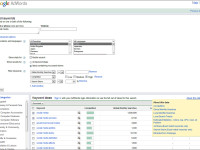Canada’s controversial anti-terrorism bill, Bill C-51, has emerged as a key talking point in the current election campaign. Pointing to its big implications for privacy and surveillance, the NDP sees political opportunity by emphasizing its opposition to the bill, while the Liberals have been forced to defend their decision to support it (but call for amendments if elected). The Conservatives unsurprisingly view the bill as evidence of their commitment to national security and have even floated the possibility of additional anti-terror measures.
While Bill C-51 now represents a legislative shorthand for the parties positions on privacy and surveillance, a potentially bigger privacy issue merits closer attention.
My weekly technology law column (Toronto Star version, homepage version) notes that last year, the government concluded more than a decade of debate over “lawful access” legislation by enacting a bill that provided new law enforcement powers for access to Internet and telecom data. The bill came just as reports revealed that telecom providers faced more than a million requests for such information each year and the Supreme Court of Canada issued its landmark Spencer decision, which ruled that Canadians have a reasonable expectation of privacy in their basic subscriber information, including name, address, and IP address.









